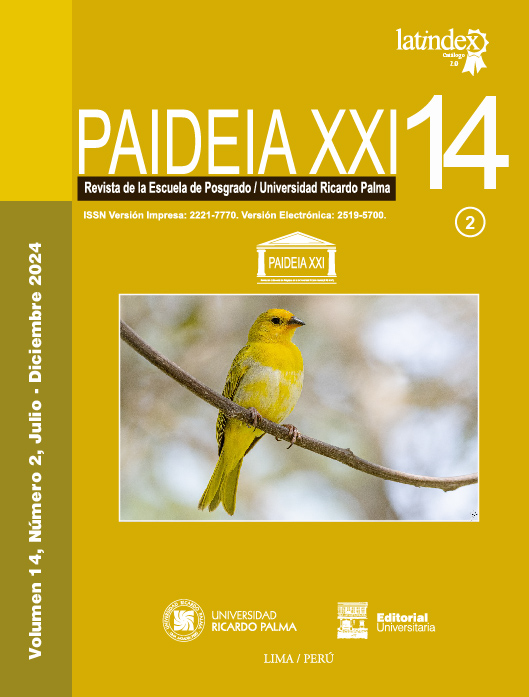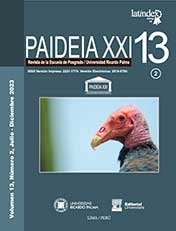Effects of Covid-19 on eating habits, physical activity and body mass index of college students
DOI:
https://doi.org/10.31381/paideiaxxi.v14i2.6808Keywords:
body mass index, COVID-19 pandemic, eating habits, physical activity, surveyAbstract
The objective was to evaluate the effect of the COVID-19 pandemic on the eating habits and physical activity of students from the Federico Villarreal National University. For this purpose, a structured multiple-choice questionnaire was distributed via WhatsApp and email, which was subdivided into the sections of Generalities, Physical Activity and Eating Habits (HA), and the data was processed with Excel Microsoft 365. 215 people were surveyed, it was determined that physical activity during social isolation (SA) changed from vigorous to sedentary, with men reducing their practice of exercises that required greater physical effort. It was determined that the average frequencies before the pandemic / during social isolation / current for men were: 2,0 / 1,9 / 2,0 days respectively and for women 1,8 / 1,9 / 1,8 days, the intake of food prepared at home increased, varying the composition and type of food. Respondents stated that their HA after SA were better by 59%. Therefore, the pandemic period initially led to an imbalance in the eating habits and physical activities of the respondents, which led to the presence of obesity, malnutrition, among other adverse effects, but allowed in a subsequent period to improve the selection of foods, their way of ingestion, as well as the practice of exercises. It is necessary to prevent these reactions in abnormal situations, through programs that encourage nutritional and physical education.












